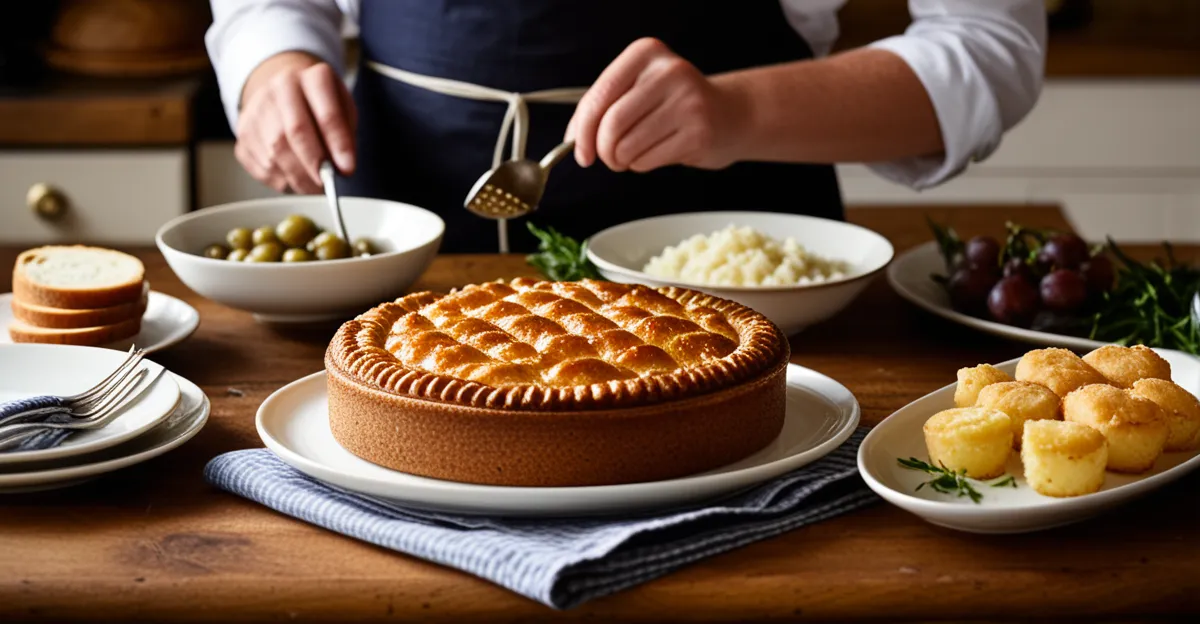Cultural and Historical Value of Traditional British Recipes
Traditional British recipes hold deep cultural significance, acting as living links to the nation’s past. These dishes are more than just food; they embody the essence of British culinary heritage, offering a tangible connection to communal memory. Each recipe tells a story of generations, reflecting regional identities and historical epochs.
Preserving tradition through food history helps maintain a unique cultural identity. Classic dishes, from hearty stews to delicate puddings, have been passed down over centuries, often tied to seasonal cycles and local customs. This continuity sustains a shared sense of belonging and pride.
Also read : How Can British Culinary Traditions Inspire Modern Cooking Techniques?
Moreover, the transfer of culinary techniques and knowledge across generations is vital. Skills such as slow cooking, baking artisan breads, or crafting sauces remain central to British culinary heritage. These methods do more than create flavors; they anchor communities and nurture family bonds. In a rapidly changing world, upholding these traditions preserves a distinctive British cultural footprint, ensuring that heritage remains relevant and cherished.
Health and Sustainability Aspects
Traditional British recipes often emphasize the use of fresh, locally sourced, and seasonal ingredients, which aligns closely with modern principles of sustainable eating. By relying on produce cultivated nearby and available according to the seasons, these dishes naturally reduce the carbon footprint associated with long-distance food transportation. This practice not only supports local farmers but also ensures that meals use ingredients at their nutritional peak.
In the same genre : How Can British Culinary Traditions Inspire Modern Cooking Techniques?
Many traditional British cooking methods, such as slow simmering or baking, contribute to the creation of healthy British food by preserving nutrients and avoiding excessive use of processed additives. These techniques encourage balanced meals that are satisfying yet wholesome, promoting a diet less dependent on heavily processed or imported foods.
Choosing traditional recipes fosters sustainable eating by minimizing waste. For example, recipes often utilize whole ingredients, including cuts of meat or root vegetables that might otherwise be discarded, contributing to a more resource-efficient kitchen. This respect for all parts of the ingredient mirrors current trends in sustainability.
Incorporating traditional British food into daily eating habits offers dual benefits: it maintains cultural connection while supporting environmental responsibility through conscious sourcing, healthful preparation, and mindful consumption.
Culinary Relevance and Modern Appeal
Traditional British food today continues to influence modern British cuisine profoundly, showcasing the enduring relevance of classic dishes. Chefs and home cooks alike draw inspiration from historic recipes, adapting them with contemporary ingredients and techniques to suit varied tastes and lifestyles. This blending respects heritage while embracing innovation, making traditional foods accessible and appealing.
How do classic dishes remain relevant? They offer a foundation that highlights regional flavors and time-tested methods. For example, a traditional beef stew might be reimagined with lighter broths or plant-based alternatives, keeping the essence intact while meeting current dietary preferences. This approach helps preserve the British culinary heritage while advancing its reach.
Moreover, traditional recipes celebrate culinary diversity by reflecting Britain’s evolving food culture. They act as entry points for exploring regional ingredients and flavors, fostering appreciation for local specialties amid global influences. The modern kitchen thus becomes a space where heritage and innovation coexist, inviting experimentation grounded in history.
Emphasizing the continued use of family recipes and traditional cooking methods in today’s kitchens encourages both preservation and evolution, ensuring Britain’s rich food history remains vibrant and relevant.
Keeping Traditions Alive in the Modern Kitchen
Preserving cooking traditions is essential for sustaining the rich heritage embedded in family recipes. Passing down these recipes not only maintains culinary skills but also strengthens family bonds and community ties. Intergenerational cooking sessions encourage younger members to learn traditional methods, ensuring knowledge transfer remains vibrant.
How can families effectively share and teach these skills? Practices such as cooking together provide hands-on learning environments where techniques like slow simmering or baking are demonstrated and appreciated. This not only builds competence but also cherished memories around food preparation.
Food education plays a pivotal role in reinforcing the value of culinary heritage. Schools and community groups engaging in cooking workshops help broaden understanding, making traditional recipes accessible to a wider audience. Such initiatives empower individuals to experiment while respecting tradition.
In essence, fostering active participation in traditional cooking nurtures a sense of belonging and cultural pride. It transforms the kitchen into a dynamic space for preserving and evolving culinary heritage through shared experience, storytelling, and deliberate practice, ensuring that food history remains a living, participatory part of everyday life.











